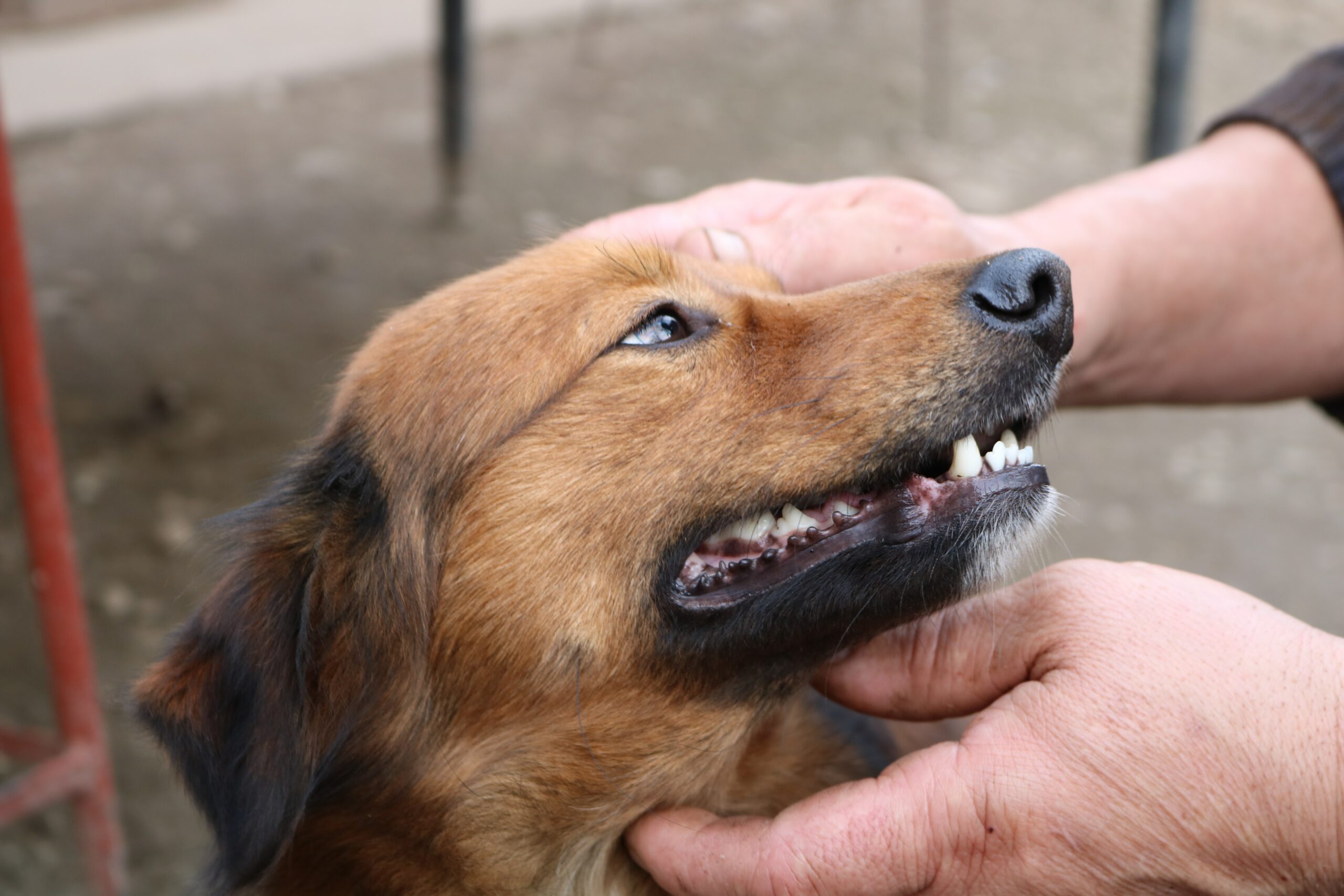Oral health issues can affect dogs just as they do humans, and one common problem that can affect our furry friends is mouth ulcers. Mouth ulcers, also known as oral ulcers or canker sores, are painful sores that develop in the mouth, including the tongue, gums, and inside cheeks. Another is a severe form of oral ulceration that CUPS. It can primarily affects the gums and surrounding tissues in dogs. It causes chronic inflammation, pain, and ulceration, significantly impacting a dog’s quality of life.
Symptoms of Oral Ulceration and CUPSz
Dogs with oral ulceration and CUPS may exhibit the following signs and symptoms:
- Severe halitosis (bad breath)
- Decreased appetite and weight loss.
- Excessive drooling
- Difficulty in grooming or chewing
- Swollen and inflamed gums (gingivitis)
- Faucitis (inflammation of the cavity at the back of the mouth – the fauces)
- Pharyngitis (inflammation of the back of the mouth, continuous into the larynx – the pharynx)
- Buccitis/buccal mucosal ulceration (tissue of the inner cheeks)
- Thick, ropey saliva (ptyalism)
- Mucosal ulceration on the gums that meet the lips – also called “kissing ulcers”
- Plaque on teeth
- Exposed, necrotic bone (alveolar osteitis and idiopathic osteomyelitis)
Causes of Oral Ulceration
Potential causes of dog mouth ulcers fall into the following broad categories:
1. Inflammation
- Periodontal disease
- Faucitis
- Pharyngitis
- Oral Mucositis (Mucositis refers to inflammation and ulceration of the oral mucosa, which can occur as a side effect of certain medications, radiation therapy, or chemotherapy. It is most commonly seen in dogs undergoing cancer treatment.)
2. Infection
Bacterial, fungal, or parasitic infections can occasionally lead to ulceration in the mouth. These infections may be secondary to an underlying condition or occur as a primary infection. Examples include bacterial stomatitis, oral candidiasis (thrush), or oral ulceration caused by parasites like Leishmania.
3. Immune-mediated disease (e.g. pemphigus vulgaris)
4. Metabolic disease (e.g. advanced kidney disease)
5. Trauma (e.g. burns, mechanical injury)
6. Nutrition-related
- Protein-calorie malnutrition
- Riboflavin deficiency (Vitamin B2
Diagnosis and Treatment Options
The veterinarian will closely examine the oral cavity, looking for signs of ulceration, inflammation, and dental disease. Dental radiographs may be taken to evaluate the extent of the underlying dental issues.
- Often dogs that have been unable to eat properly for some time will need nutritional therapy to compensate. If your dog is suffering from anorexia, a soft diet with fluid therapy and/or a feeding tube will be taken immediately and your vet may also recommend vitamin supplements.
- Teeth that have been seriously affected by damage or disease may also be extracted at this time. Your veterinarian will most likely prescribe pain medication to help relieve any pain caused by the extraction as well as the pain caused by the disease itself. In some cases, other medications such as antibiotics or corticosteroids may be recommended.
- In all cases of retained teeth, the dog must be brushed daily or twice daily.
- Clean the lips and skin outside the dog’s mouth regularly
If your dog’s lips or lip folds are affected, it is important to keep these areas clean and dry. This is important to control inflammation and prevent progression to secondary infection. Your vet may also shave the hair around the dog’s mouth and prescribe a topical disinfectant to thoroughly clean the area of the teeth.
In addition, if your dog is always pawing or rubbing his face, he may need an Elizabethan collar (aka “e-collar”) to prevent him from continuing to harm his lips and skin.
Conclusion
Oral ulceration and chronic ulcerative paradental stomatitis can significantly impact a dog’s well-being. With proper diagnosis and a comprehensive treatment plan that may include dental procedures, pain management, and immunosuppressive therapy, dogs with oral ulceration and CUPS can experience relief from pain and improve their overall quality of life. Regular dental care and ongoing management are important to prevent recurrences and maintain oral health in affected dogs. Consult with your veterinarian for guidance specific to your dog’s condition and to discuss the most appropriate treatment options.
Photo credit: https://unsplash.com/photos/U5P1GThl5BY
Did you find this city dog content helpful? Share it with a friend or link it to social media. Enjoy short clips of silly dogs? Best dog training videos? Holistic puppy training tips? Follow us on instagram @nydognanny or on YouTube at nydognanny. Have some news you needs to get to dog and cat parents stat? Email info@newyorkdognanny.com with your article pitch.




